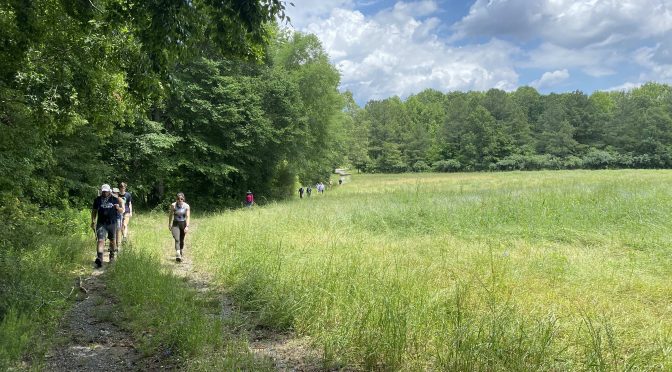The following is a post we rerun when the temperatures heat up and we’re suddenly, sometimes unexpectedly, at greater risk for heat exhaustion. It has been slightly tweaked from previous versions.
With temperatures possibly hitting 90 today, for the first time this year, we’re reminded that, while we’ve spent the last several months longing for warmer weather, we need to show it the proper respect now that it’s here. Today we share some thoughts about heat exhaustion: how to recognize it at the onset, how to treat it, and, most importantly, how to prevent it.
Heat exhaustion can lead to heat stroke which can damage the brain and other organs and can lead to death. Fortunately, if you recognize and treat heat exhaustion at the outset you can keep it from devolving into something much more serious.
Recognize the symptoms
The key is recognizing the symptoms, which include:
- Confusion
- Dark-colored urine (a sign of dehydration)
- Dizziness
- Fainting
- Fatigue
- Headache
- Muscle or abdominal cramps
- Nausea, vomiting, or diarrhea
- Pale skin
- Profuse sweating
- Rapid heartbeat
React to the symptoms
If you recognize these symptoms in yourself or in a hiking partner, get them out of the heat as quickly as possible — into the shade, into water if it’s nearby. You also want to:
- Drink plenty of fluids, especially sports drinks to replace lost salt. Avoid caffeinated beverages and alcohol.
- Remove tight or unnecessary clothing.
- Douse a bandana in cool water and swab the victim with it.
Be aware that if can take longer to cool a victim of heat exhaustion if the relative humidity is 60 percent or more (which is typically is in these parts) and if the heat index is 90 or greater.
Especially vulnerable hikers
Folks especially subject to heat exhaustion include:
- Children under 4
- Adults over 65
- People with health conditions including heart lung and kidney disease, high blood pressure, diabetes, sickle cell trait and more.
- People on certain medications, including diuretics, sedatives, tranquilizers, stimulants, heart and blood pressure medications.
Cool places to hike
For summer hikes when it’s especially hot we recommend:
- Trails with good tree cover. The canopy can reduce the temperature by 10 degrees.
- Trails along water. Cooling off periodically — even just shedding the hiking shoes and wading in — can help keep your temperature down.
- Trails at elevation. A good rule of thumb is that the temperature drops about 3.3 degrees F for every 1,000 feet of elevation gain. So if it’s 90 degrees in Raleigh (elevation 315 feet), it will be about 70 atop Mount Mitchell (elevation 6,684 feet).
- Taking a bandana that you can soak periodically and wrap around your neck.
- Packing cold water. If you prefer drinking from bottles, the night before a hike, fill a water bottle half full and put it in the freezer; the next morning, top it off with cold tap water. It should remain cold for an hour on the trail, cool for another half hour. If you’re a bladder person, fill it with ice, then top off with water. Again, you should have cool water for a good hour and a half or so.
Above all, try to nip heat exhaustion in the bud before it becomes an issue by staying hydrated on the trail! This time of year we recommend an absolute minimum of 2 liters for hikes of 5 miles or less (and more under extreme heat or on an especially challenging trail). If you’re hiking in the mountains and going long, bring a water filter (or make sure someone in your group has one).
Folks who are especially worried about heat exhaustion should check out the article Heat Exhaustion on WebMD.com, from which most of the information in this article was cribbed.
Enjoy your summer hiking by staying hydrated and staying cool.
* * *
GetHiking! Southeast Podcast
This week, we share some regional trail news —including the opening of a photo exhibit at Tennessee’s Norris Dam State Park — and talk about 5 of our favorite resources. Give a listen here.
